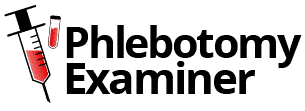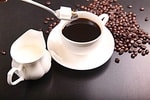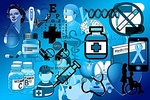High blood pressure (hypertension) has very few noticeable symptoms, so it often goes undetected. Some people can have hypertension for years without noticing any obvious signs. But, many of us associate nosebleeds with high blood pressure, but that’s not usually the case.
In severe cases, where your blood pressure suddenly spikes, a nosebleed can occur. And, according to the Mayo Clinic, there are instances where a hypertensive crisis can happen. But, nosebleeds, themselves, are rarely caused by high blood pressure alone.
Other medical factors can cause your nose to start bleeding, though. And it’s also true that high blood pressure can make your nose bleed faster (and be more difficult to stop) once the bleeding has started.
[su_list icon=”icon: check-circle”]
What Causes Frequent Nosebleeds in Adults?
Nosebleeds can happen because of the delicate blood vessels that line the inside of the nose. They are close to the surface, so it’s easy for them to become damaged. Because these blood vessels can become irritated or damaged so easily, there are many potential causes.
But, the primary reason for most nosebleeds is dry air. When the blood vessels inside your nose dry out, it’s more likely that they’ll bleed. Consider when you have dry skin. It’s easier for that skin to crack open and start to bleed.
There are, of course, other reasons why nosebleeds occur and why some people experience this issue more often than others.
Common Reasons for Nosebleeds
- Picking your nose
- Allergies
- Sinus infections
- Colds
- Deviated septum
- Foreign object in the nose
- Trauma to the nose
- Cocaine use
There are further reasons, including health conditions that can make it easier for you to get a nosebleed.
Medical Reasons for Nosebleeds:
- Pregnancy
- Leukemia
- Bleeding disorders
- Nasal tumors and polyps
It can be hard to pin down exactly what might be causing your nosebleeds. If you tend to have chronic nosebleeds, though, it’s critical to figure out the culprit. That will enable you to treat the underlying condition or avoid the problem altogether.
What Are the Causes of Sudden High Blood Pressure?
Blood pressure fluctuates up and down throughout the day. It’s completely normal and can be caused by anything from your activity level to the foods that you eat. But, volatility and extreme blood pressure spikes are entirely different.

Sudden spikes can be more severe than typical fluctuations throughout the day. Just as there are many causes of nosebleeds, there are also many reasons for spikes in your blood pressure.
Some of the known causes are as follows:
- Caffeine: A study from Harvard University linked the intake of caffeine to blood pressure spikes. For many people, caffeine is a daily necessity because it’s found in so many of our favorite foods and drinks (coffee, sodas, energy drinks, and chocolate.) In moderation, caffeine shouldn‘t harm your body. But, if you feel any unusual symptoms, you may want to cut back.
- Exercise: Both strength training and cardiovascular exercise can cause your systolic blood pressure to jump. This is normal and doesn’t cause any issues unless you experience any adverse effects during exercise and weightlifting. Wait about 30 minutes after exercising to recheck your blood pressure. You should find that it has returned to its resting state.
- Stress and Anxiety: Stress doesn’t have a long-term effect on your blood pressure. But, in stressful situations or when you’re feeling anxious, it can cause your blood pressure to spike into dangerous territory temporarily. You should manage stress as best you can.
- Medications: Almost all drugs have side effects, and one of the problems is high blood pressure. Unless the spikes are frequent, it may not be anything to worry about. Ask your doctor to change your medication(s) if these fluctuations become a real problem.
Everything from medical conditions to tobacco use can affect your blood pressure. Usually, it will level out on its own. Many times, you won’t even experience any symptoms.
Can a Spike in Blood Pressure Cause a Nosebleed?
Sudden spikes in blood pressure don’t have any obvious symptoms. There are severe cases, though, that can cause significant problems. These are called hypertensive emergencies (hypertensive crisis).
A hypertensive crisis occurs when your systolic blood pressure (the top number) jumps to over 180 and the diastolic number (bottom) jumps to over 120. These extreme spikes are far more dangerous because they can cause permanent damage to your blood vessels.
They can cause a variety of intense symptoms, including:
- Chest pain
- Blurred vision
- Nausea
- Unresponsiveness
- Shortness of breath
Another sign of a hypertensive crisis is a nosebleed. This is usually caused by damage to the blood vessels in the nose because of the extreme pressure against them. Remember, high blood pressure rarely causes nosebleeds. But, these extreme spikes can be a trigger. If you get a sudden nosebleed, along with any of the other symptoms listed above, you should seek out medical attention immediately.
If a hypertensive crisis is ignored, it could lead to severe health conditions, including permanent damage to your organs.
Are Nosebleeds a Sign of Low Blood Pressure?
There’s a misconception that when your blood pressure dips too low, it can cause nosebleeds. Again, it’s untrue. Sometimes, you might experience similar symptoms of an extreme dip in your blood pressure as you would when you get a nosebleed.
The symptoms include dizziness, nausea, headache, etc. But, it’s doubtful that it’s the drop in your blood pressure that caused the nosebleed in the first place. Nosebleeds often result in nausea because you may be swallowing blood. As the blood gets into your stomach, it can cause irritation and sickness. It may even induce vomiting.
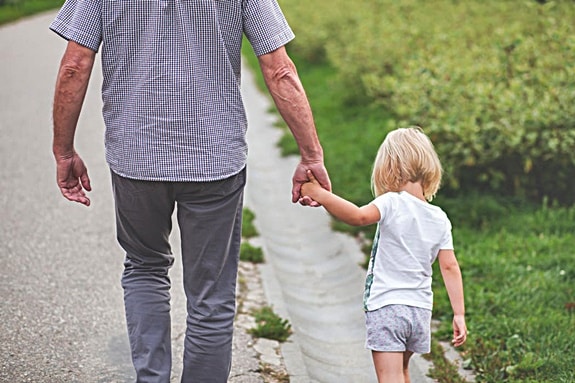
The symptoms associated with a rapid drop in blood pressure include:
- Fatigue
- Clammy skin
- Blurry vision
- Dizziness
If you experience these symptoms suddenly, you should sit down and rest while medical help is being called for you. Try not to stand too quickly, or your blood pressure may fluctuate too rapidly and lead to a fall.
Can Nosebleeds Be a Sign of Something More Serious?
Often, there is nothing to be concerned about when you experience a nosebleed. This is especially true if you know the reason was something like trauma to the nose or dry air. But, unexpected nosebleeds or frequent nose bleeds could be a sign of a more serious problem.
Frequent nosebleeds occur more than once a week. Nosebleeds this often could be a sign of an underlying health condition.
Potential health issues include:
- Sinus tumors
- Liver disease
- Kidney disease
- Clotting disorders
Certain medications can also cause frequent nosebleeds, while others can make them worse or last longer. If you’re on a medication that is triggering nosebleeds, or they are becoming frequent, you should talk to your doctor about modifying your prescription.
When to Seek Help for a Nosebleed
Most of the time, a nosebleed can be taken care of at home. We’ll cover how you can stop a nosebleed from getting out of control in the next section. Sometimes, though, you might need medical assistance.
Seek medical help for a nosebleed if you experience any of the following issues:
- Bleeding does not stop even after holding pressure to the area for at least 20 minutes
- Frequent nosebleeds (more than once a week)
- Repeated nosebleeds in succession
- A head injury caused the bleeding
- Trauma to the nose caused the bleeding
If you got hit in the head or face and your nose starts to bleed, you should always see a doctor. It could have caused further damage, like a concussion or broken nose.
[/su_list]
How to Stop a Nosebleed (Step-by-Step Guide)
Under normal circumstances, it’s relatively easy to stop a nosebleed.
Follow these simple steps, and the bleeding should stop within minutes:
- Sit down on a comfortable surface. Standing might make you dizzy if your nose has been bleeding for a while.
- Pinch the bottom, softer part of your nose just above your nostrils. Be firm in the way you hold it. You can use a tissue to catch the blood here as well.
- Lean forward instead of leaning back. This will keep the blood from draining into your throat. If too much blood does get into your throat and is swallowed, it could later cause a stomach ache or nausea.
- You can use an ice pack to slow the bleeding and prevent any swelling on your nose.
- Keep firm pressure on your nose until the bleeding has completely stopped.
- Clean away any blood from your nostrils and face.
What NOT to Do if You Have a Nosebleed
Stopping a nosebleed isn’t fun, but it also isn’t that difficult. There are, however, certain things you should avoid if you have a nosebleed. Some actions can make the bleeding worse or lead to complications.
[su_list icon=”icon: check-circle”]
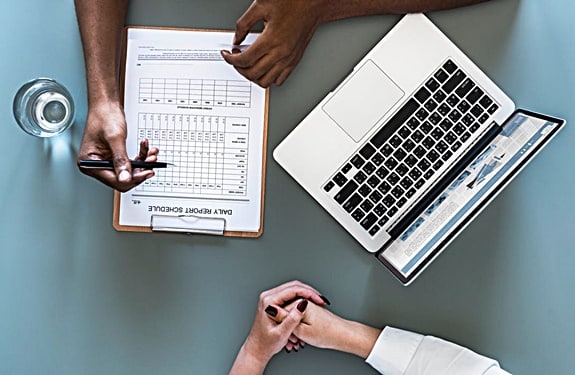
You should avoid the following mistakes:
- Don’t stop applying pressure for at least 10 minutes. It’s tempting to check to see if the bleeding has ended, but each time you release pressure, you could be allowing the blood to start flowing again.
- Don’t lay down on your back. Staying upright will reduce the pressure in your nose and will help it to stop bleeding so freely.
- Don’t pack your nose with tissues or other items. You can use a tissue to catch the blood. But, picking your nose can cause further damage to your blood vessels and make the bleeding worse.
How to Recover from a Nosebleed
Most people think that once their nose has stopped bleeding, there’s nothing to worry about. That’s not entirely true. There are precautions you should take for a few days (if not weeks) after you have a nosebleed. These suggestions will enable you to heal properly and reduce the risk of getting another nosebleed right away.
Don’t do any of the following:
- Avoid blowing your nose or picking it for at least 24 hours.
- Don’t drink alcohol or hot beverages for at least a day.
- If you feel any ‘crust’ in your nose, don’t pick at it or try to remove it. It helps with healing.
- To reduce the pressure in your nose, try to sneeze with your mouth open.
It can take up to two weeks for the blood vessels in your nose to fully heal after a nosebleed. So, while it may not seem vital to take extra precautions, doing so will enable your nose to heal faster.
How to Reduce Blood Pressure Levels
Keep your blood pressure under control, especially if you have been diagnosed with hypertension. Lowering your risk of experiencing extreme fluctuations will protect you against the more troublesome symptoms.
Your doctor may recommend medication. According to the CDC, about 7 out of every 10 adults in the U.S. use medication to treat their high blood pressure levels. Medicine enables your kidneys to remove salt and water from the body. This lowers your blood pressure and makes your blood vessels looser. This is why blood pressure pills are regularly referred to as water pills.
Not everyone wants to take prescription medications. Some people don’t want to deal with potential side effects. Others don’t want to be dependent on medicine. Thankfully, there are natural ways to lower your blood pressure.
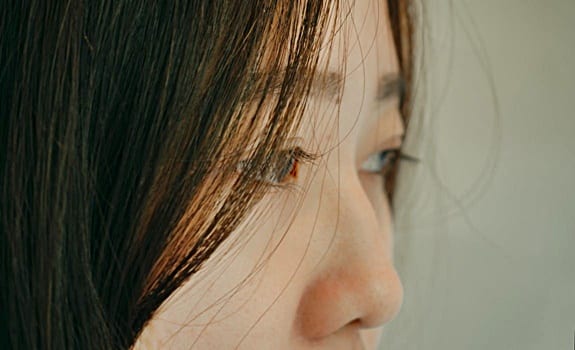
Here are some natural solutions:
- Lose weight: Blood pressure has been known to go up when your weight goes up. If you’re carrying extra weight, you should work on a diet and exercise plan to shed those unwanted extra pounds.
- Diet and exercise: This is essential when it comes to lowering your blood pressure. Your blood pressure can spike during a workout, but in the long run, it will likely lower your levels. Your diet should include whole grains, lean meats, and fruits and vegetables. Try to reduce your salt and caffeine intake, too.
- Quit smoking: One cigarette can raise your blood pressure for several minutes. Cutting back or quitting is beneficial.
- Reduce your stress: Stress is inevitable, but you can manage your stress and keep calm in almost any situation. Find something that works for you. Everything from light exercise to deep breathing and meditation can be helpful.
Your blood pressure can be managed. Sometimes, people can handle it so well that they can get back to normal levels without taking medication. If your blood pressure is consistently high, you should talk to your doctor immediately. No matter what, you should never ignore blood pressure levels that are too high as you’ll be more at risk of having a stroke.
High blood pressure can be hard to diagnose. Symptoms like nosebleeds don’t usually show up because of hypertension alone. It’s rare to experience any symptoms at all unless you have a sudden spike in your blood pressure.
It’s necessary to monitor your blood pressure regularly. Some machines can do this at home, but an annual visit to your doctor is typically sufficient for most people. If you do tend to have high blood pressure, keeping track of it at home is recommended. You should also lead a lifestyle that regulates your blood pressure and keeps it in a healthy range.
[/su_list]
